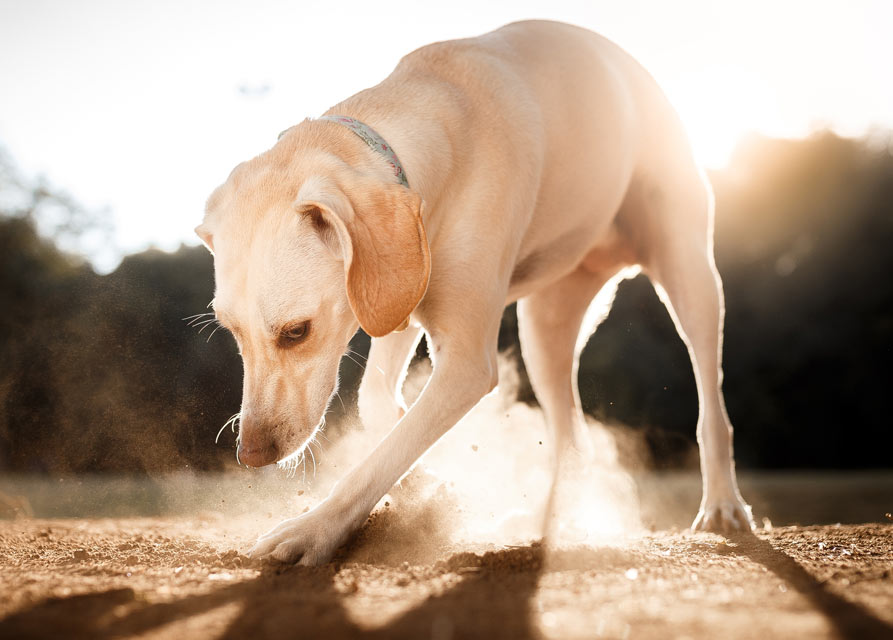Pica in Dogs

Pica is the ingestion of non-food items. It can cause diarrhea, vomiting, obstruction of the stomach or intestines, puncture of the GI tract, or malnutrition if dogs eat more non-food items than they do their food.
Coprophagia (stool eating) is a type of pica. So is eating dirt, plastic bags, or any other non-food item.
What Causes Pica in Dogs?
Pica in dogs can be caused by:
- Behavioral disorders, including obsessive-compulsive conditions, boredom, stress, or separation anxiety. Dogs that are chained outside without anything to do may eat dirt out of boredom and stress. Some dogs can develop OCD-like conditions that manifest as pica.
- Anemia or iron deficiency.
- Malabsorption disorders, especially exocrine pancreatic insufficiency (EPI).
- Hunger. A dog that isn't getting enough calories from food may eat non-food items out of pure hunger.
- Neurological conditions affecting the brain. A portosystemic liver shunt is one of the primary conditions in this category.
- Puppyhood. Young dogs sometimes eat non-food items out of curiosity or as part of their play and exploration.
Diagnosis of Pica in Dogs
When a dog is exhibiting pica, a veterinarian will take a complete history from you and do a thorough physical exam. If there are other signs of illness like weight loss, lab tests might be done to check for anemia, EPI, and portosystemic shunt.
X-rays may be done of the GI tract to look for obvious tumors or check for any indication of a foreign body obstruction.
If all medical conditions are ruled out, the dog's pica may be diagnosed as behavioral.
Treatment of Canine Pica
When a dog is exhibiting pica, any underlying medical condition that's diagnosed must be treated.
If a dog's pica is determined to have a behavioral cause, the following are some steps to take:
- Limit the dog's access to the items he seems to like to ingest. If it's dirt, the dog must be walked on a leash and not left outside alone.
- Provide a safe alternative for chewing or playing with and keep the dog in his crate when you can't supervise him if you believe the cause is puppyhood.
- Be sure your dog has proper enrichment (lots of toys) and provide plenty of exercise and interactive play time each day to decrease boredom and stress.
- If your vet feels the dog isn't getting enough calories, get the doctor's recommendation for type and amount of food.
For more information on treating separation anxiety, check this article: "Separation Anxiety in Dogs."
Behavioral modification for dogs with pica can include redirecting their attention to a play session or something else when they move toward chewing the undesirable item. Give the dog praise for doing something other than engaging in pica.
Some dogs with pica require medications for anxiety. Check with your vet if you believe that might be the case for your dog. Never give any meds without checking with your vet first.
Dogs with behavioral pica may benefit from being evaluated and treated by a board-certified canine behavior specialist. Ask your regular vet for help finding one in your area.
You May Also Like These Articles:
Why Do Dogs Eat Poop?: Coprophagia in Dogs
X-Rays in Dogs: What Can They Tell Your Vet?
Disclaimer: This website is not intended to replace professional consultation, diagnosis, or treatment by a licensed veterinarian. If you require any veterinary related advice, contact your veterinarian promptly. Information at DogHealth.com is exclusively of a general reference nature. Do not disregard veterinary advice or delay treatment as a result of accessing information at this site. Just Answer is an external service not affiliated with DogHealth.com.


